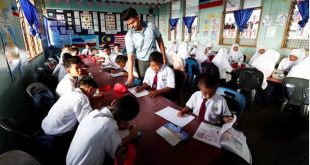An education group has urged the Education Ministry to be cautious about its plan to introduce technical and vocational education and training (TVET) for first-year students in the 2027 curriculum, warning that teachers and students should not be treated like “pigs” in this transition.
While supporting the idea of introducing TVET at the primary school level, Universiti Kebangsaan Malaysia (UKM) Hasnah Toran said the curriculum should be carefully designed to ensure that the content is relevant to children as young as seven. “The biggest problem the Ministry of Education will face is the teachers themselves. Not only will students be ‘pigs’, but teachers will also be ‘pigs’,” he told FMT. Deputy Education Minister Wong Kah Woh told the Dewan Rakyat on Thursday that primary school students will be exposed to the possibilities of TVET through an integrated approach, combining science, technology, digital studies, arts and health education.
For Grade 5 and 6 students, the curriculum will expand to include core TVET subjects such as Technology, Home Science, Engineering, Programming and Agriculture, all taught through project-based learning that encourages inquiry and application. application of digital tools. Hasnah said the ministry must present the program in a way that will appeal to teachers.
“The ministry must assure teachers that this new content will not increase their current workload. He said: “We need to put this concept in a way that teachers can accept it.”
Hasnah also said that the basic 3R skills – reading, writing and numeracy – should be incorporated into the teaching and learning process. Amir Asyraf Sabri, head of the National Student Advisory Council Alumni Association, said that this plan can produce a generation of young people who are qualified and competitive.
“Through a practical and skill-based approach, TVET can help students who have little interest in the traditional education system improve their skills. “The early introduction of TVET should equip students with the necessary understanding and skills in areas such as science, technology, engineering and other disciplines that are increasingly relevant to the modern economy,” he said.
